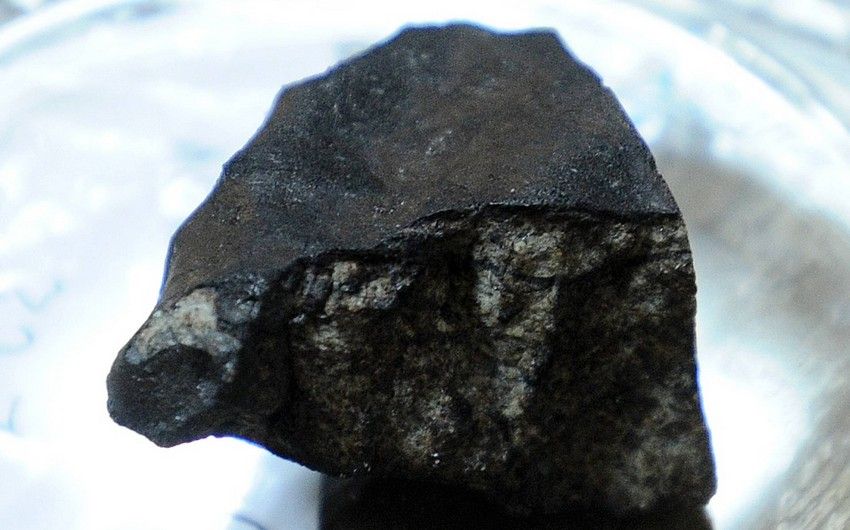23 November 2024 18:41 (UTC+04:00)

By Alimat Aliyeva
Australian and European planetary scientists have found grains of minerals in the famous Martian meteorite "Black Beauty" that originated on Mars about 4.45 billion years ago, as a result of the contact between hot rocks and very hot liquid water, Azernews reports.
"Colleagues now believe that hydrothermal systems were a key ingredient for the emergence of life on Earth. The discovery of their analogues on Mars indicates that, at the very early stages of the formation of its crust, hot liquid water was present on the surface of Mars, which was necessary for the evolution and maintenance of life," said Aaron Kavosi, senior researcher at Curtin University, whose words are quoted by the university's press service.
Scientists made this discovery while studying fragments of the meteorite "Black Beauty," which was discovered in the Moroccan part of the Sahara Desert in 2011. Subsequently, it fell into the hands of American collectors of "heavenly stones," who later transferred the find to planetary scientists, who assigned it the name NWA 7034.
Recently, scientists studied several fragments of "Black Beauty" and concluded that the meteorite is a fragment of the primary Martian crust, ejected from the surface of the planet about 5-10 million years ago. During their study of the meteorite's formation history, Australian researchers found several unusual deformed grains of zircons inside it—crystals of refractory rocks that form when they "ascend" to the surface of a planet.
When scientists tried to uncover the history of these crystals' formation, they found evidence that these zircons contained inclusions of iron, aluminum, sodium, and some other elements not typically found in such refractory mineral grains. Subsequent study of their structure and location indicated that these inclusions were the result of the zircons' contact with very hot water.
The temperature of this water, according to scientists' calculations, was about 500-800 degrees Celsius, suggesting the existence of hydrothermal vents on ancient Mars. These vents are believed to have been the main "factories" for the simplest organic molecules on ancient Earth. Their presence on Mars implies that, in the distant past, suitable conditions existed on the fourth planet of the Solar System for the origin of life, the scientists concluded.
Over the past two decades, planetary scientists have discovered a wealth of evidence that rivers, lakes, and entire oceans of fresh water existed on the surface of Mars in ancient times. According to current estimates, they contained about the same amount of water as the terrestrial Arctic Ocean. However, scientists cannot yet say for sure where this water went or when it appeared on the surface of the fourth planet in the Solar System.
No comments:
Post a Comment